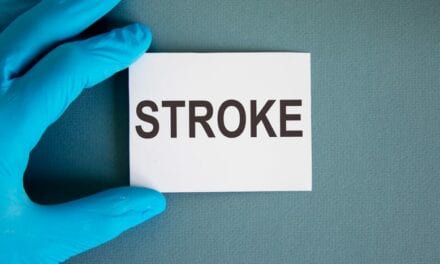by Will Boggs, MD
Last Updated: 2007-09-25 17:59:24 -0400 (Reuters Health)
NEW YORK (Reuters Health) – Elevated serum calcium levels in patients with acute ischemic stroke are associated with smaller infarct volumes, according to a new report.
"This is an observational study and therefore it is not possible to draw conclusions about the cause-effect relationship between serum calcium and infarct volume," Dr. Brian H. Buck from University of Toronto told Reuters Health. "Based on these results, physicians may want to consider checking calcium early in acute ischemic stroke patients and be more diligent in correcting hypocalcemia."
Dr. Buck and colleagues assessed the relationship between serum calcium levels at admission and initial diffusion-weighted MRI infarct volumes among 173 consecutive patients with acute ischemic stroke seen within 24 hours of stroke onset.
The median infarct volumes were 9.42 mL for patients in the lowest serum calcium quartile and 3.68 mL for patients in the highest serum calcium quartile, the authors report in the September issue of the Archives of Neurology.
Infarct volumes were even lower for patients in the second lowest (2.11 mL) and second highest (1.03 mL) serum calcium level quartiles. Serum calcium level correlated negatively with infarct volume in univariate and multivariate analyses.
After multivariate analysis adjusting for potential confounding factors, median adjusted infarcts, from lowest to highest quartiles, were 8.9, 5.8, 4.5 and 3.8 mL, respectively.
Patients with the lowest serum calcium levels also had the highest NIH Stroke Scale scores at admission, the investigators say.
"Elevated serum calcium levels in acute ischemic stroke are an early predictor of smaller volumes of ischemic tissue and better clinical outcomes," the researchers conclude. "This effect was seen across a range of stroke subtypes and persisted after adjustment for other factors that could potentially affect infarct volume."
"While there is epidemiological evidence to suggest that higher dietary calcium intake is associated with a reduced risk of cardiovascular disease, this study does not suggest that increasing dietary calcium will result in smaller strokes," Dr. Buck cautioned.
"Calcium metabolism is complex, and other factors such as impaired liver and kidney function, poor nutritional status, and medications may act as confounding variables lowering calcium and potentially influencing the size of infarction."
Arch Neurol 2007;64:1287-1291.



